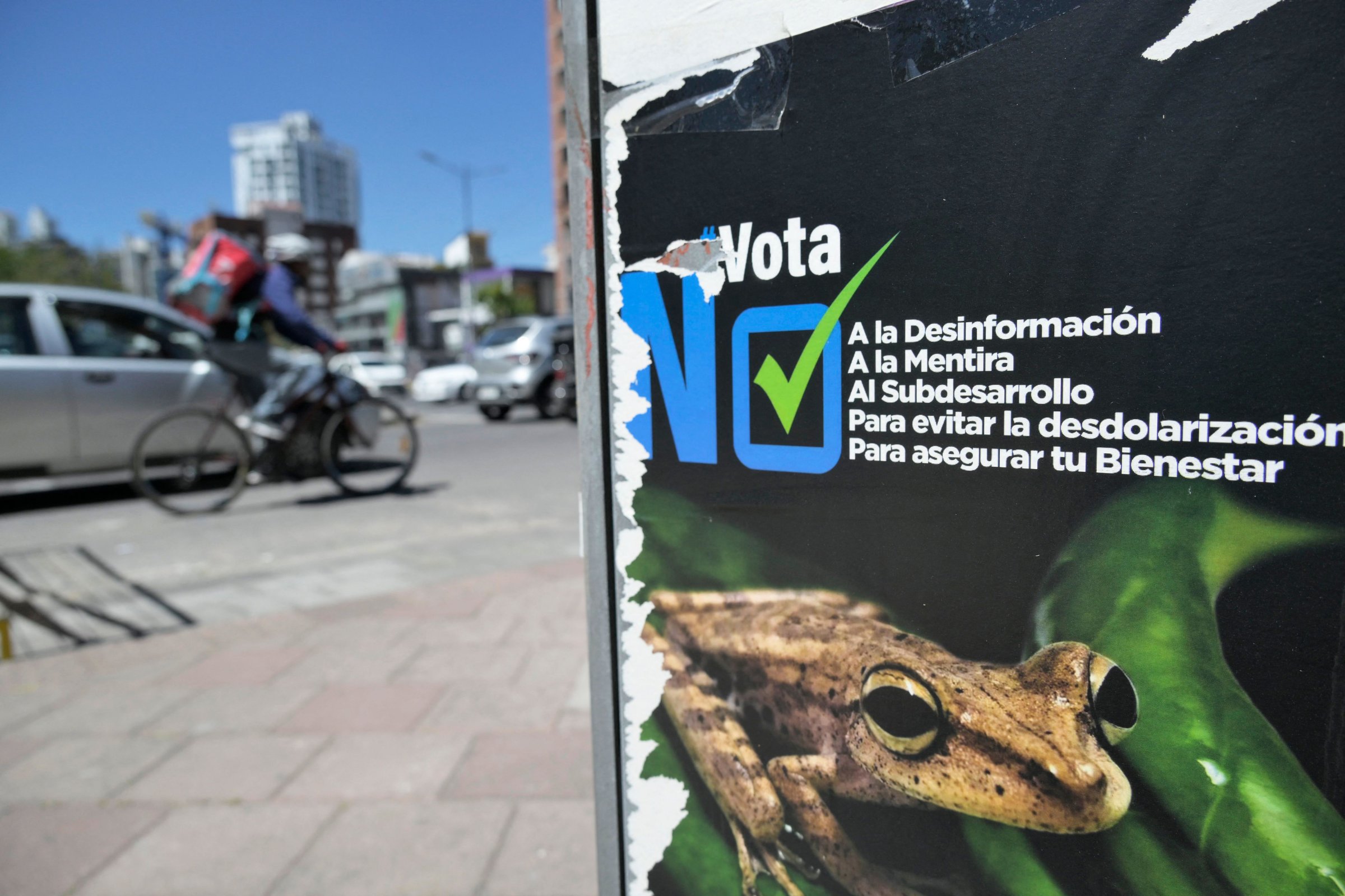
Ecuadorians voted on Sunday to stop an oil-drilling project in the Yasuni region of the Amazon with 59% voting yes on a proposition that will end the practice.
Ecuador’s government estimates that 1.67 billion barrels of oil are located under Yasuni National Park, home to over 4,000 plant species, 173 different types of mammals, and at least two uncontacted indigenous tribes. According to UNESCO, it is one of the most biodiverse regions on the planet. At today’s oil price of approximately $80 per barrel, the oil under the park would be worth over $133 billion.
In 2007, shortly after he was elected, Ecuador’s then-president Rafael Correa introduced a proposal asking that wealthy nations compensate the Ecuadorian government for not drilling in Yasuni park. Correa asked for $7.2 billion over the course of 10 years, which was equivalent to half the revenue expected to be generated by the oil reserves. The move initially received press from environmental activists, and both Spain and Germany pledged their support. However, a trust fund that the government set up to receive deposits received only $13 million by 2013.
Ultimately, his plan failed to get the necessary support from other nations; Correa and his government announced that they would go ahead with drilling. Ecuador, like many other low- and middle-income countries, was then facing a mounting debt crisis, and paying extremely high interest rates after defaulting twice in the previous 20 years. At the time, leaders in the country felt that increasing fossil fuel extraction could help relieve some of that debt—one third of Ecuador’s government revenue comes from oil. Drilling in the Yasuni region officially began in 2016 and the country has since begun selling oil from the region to the rest of the world. Currently, over 66% of oil from the Yasuni region is shipped to the United States.
Subsequent governments have maintained that approach to managing Ecuador’s resources—indeed, Guillermo Lasso, elected to the presidency in 2021, has suggested doubling down on it. In a speech last year, Lasso told the public that “Now that the global trend is to abandon fossil fuels, the time has come to extract every last drop of benefit from our oil, so that it can serve the poorest while respecting the environment.”
But indigenous communities disagree with the government’s rhetoric that their approach is respecting the environment. “It hurts me to see the little that is left of our rainforest inside this protected area,” Nemo Guiquita, a leader of the Waorani tribe which is indigenous to the Ecuadorian Amazon, told NBC News in 2021. “We should be fighting to protect our rainforest in Ecuador, but instead they are granting more oil concessions.”
Indigenous leaders were at the forefront of pushing for a ban on oil drilling in the Yasuni. In recent weeks, a group of indigenous Waorani activists traveled to 12 cities throughout the country to persuade residents to vote yes on the referendum.
Roy Brouwer, an environmental economist at the University of Waterloo, who conducted a study on the economic value of the Amazon rainforest, says that Indigenous populations tend to place an extremely high value on the environmental sanctity of the forest.
“They've lived in the Amazon for 11,000 years. How are you going to compensate these people by taking away their livelihood, cutting the forest and having them move out of the area where they live for 11,000 years? There's no monetary compensation for that.”
More Must-Reads from TIME
- Cybersecurity Experts Are Sounding the Alarm on DOGE
- Meet the 2025 Women of the Year
- The Harsh Truth About Disability Inclusion
- Why Do More Young Adults Have Cancer?
- Colman Domingo Leads With Radical Love
- How to Get Better at Doing Things Alone
- Michelle Zauner Stares Down the Darkness
Contact us at letters@time.com